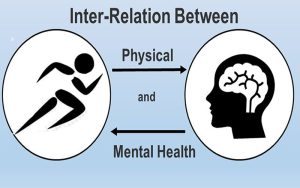
Irritable Bowel Syndrome (IBS) is a common digestive disorder that affects millions of people worldwide. It is characterized by symptoms such as abdominal pain, bloating, gas, and changes in bowel habits. While the exact cause of IBS is unknown, many individuals find relief by following a low FODMAP diet. In this article, we will discuss what the FODMAP diet is, how it works, and its potential benefits for those with IBS.
Understanding FODMAPs
FODMAP stands for Fermentable Oligosaccharides, Disaccharides, Monosaccharides, and Polyols. These are short-chain carbohydrates and sugar alcohols that are poorly absorbed in the small intestine, leading to increased fluid and gas in the colon, resulting in IBS symptoms. Common FODMAP sources include certain fruits, vegetables, dairy products, grains, and artificial sweeteners.
The FODMAP Diet
The FODMAP diet is an elimination diet that aims to identify and remove high FODMAP foods from the diet. By eliminating these trigger foods, individuals with IBS can alleviate their symptoms and better understand which specific FODMAPs may be causing their discomfort. The diet is divided into two phases: the elimination phase and the reintroduction phase.
The Elimination Phase
During the elimination phase, individuals strictly avoid high FODMAP foods for a period of around two to six weeks. This phase allows the gut to settle and symptoms to improve. High FODMAP foods that are eliminated include onions, garlic, wheat, certain fruits and vegetables, lactose-containing dairy products, and a variety of other groups. It is important to work with a registered dietitian or healthcare professional to ensure a nutritionally balanced diet during this phase.
The Reintroduction Phase
After the elimination phase, the reintroduction phase begins. This phase involves gradually reintroducing high FODMAP foods back into the diet, one food group at a time, and monitoring how the body reacts. It helps individuals identify their specific trigger foods and determine their tolerance levels. The reintroduction phase must be done under the guidance of a healthcare professional to ensure proper assessment of symptoms and guidance on reintroduction steps.
The Benefits of the FODMAP Diet
Research has shown that following a low FODMAP diet can significantly improve symptoms in about 70% of individuals with IBS. By identifying and avoiding trigger foods, individuals may experience reduced bloating, gas, abdominal pain, and improvements in bowel movements. The FODMAP diet provides individuals with IBS a way to take control of their symptoms and improve their quality of life.
Is the FODMAP Diet for Everyone?
While the FODMAP diet has shown great promise in managing IBS symptoms, it may not be suitable for everyone. It is recommended to consult with a healthcare professional or registered dietitian before attempting the diet, especially for those with complex medical conditions, nutrient deficiencies, or on certain medications. Additionally, the diet may not be necessary for individuals without diagnosed IBS, as avoiding unnecessarily restrictive diets is important for overall health and well-being.
Conclusion
The FODMAP diet offers hope for those suffering from IBS and seeking relief from uncomfortable digestive symptoms. By identifying and avoiding high FODMAP foods through the elimination and reintroduction phases, individuals can gain a better understanding of their trigger foods and manage their symptoms more effectively. If you suspect you have IBS, consider reaching out to a healthcare professional or a registered dietitian to guide you through the FODMAP diet and regain control of your digestive health.

